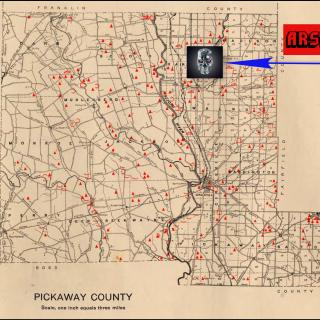Advertisement
As the novel coronavirus sweeps through America, about eighteen percent of workers have either lost their jobs or have seen their hours reduced as many businesses have closed or laid-off staff. There seems to be little end in sight: some economists predict that unemployment in the United States could reach up to thirty percent by the second fiscal quarter of 2020.
Many businesses, such as restaurants, bars, and movie theatres have been forced to close by states such as Ohio, as an effort has been made to shutter all businesses that are non-essential.
But what does it actually mean to be an essential business?
A lot of businesses fall into a gray area, and in order to continue making money, many of them are trying to stay open, thus putting their workers at risk. While many restaurants have been forced to close their seating areas, they have continued (or have started) to offer carry-out and delivery. A few days ago, it was declared many Bed, Bath, and Beyond locations would stay open, citing that they "sell health care, personal care, infant care, cleaning supplies, or food and beverages." Meanwhile, businesses such as Office Depot remain open for the time being.
On one hand, it is laughable to say that some of the services remaining open are essential. On the other hand, what else can working people do in a society where there is practically no social safety net? The economic situation in the United States, after all, was already dire before the pandemic: almost eighty percent of the American population was working from paycheck-to paycheck. According to a recent report by the Brookings Institution, furthermore, about forty-four percent of the working population was stuck in low-wage work with little benefits, making a median of $18,000 per year.
Coming to work is a big risk during a pandemic. In addition to the risks of catching the highly contagious virus, many workers report increased anxiety about coming in to work every day, often facing cruel treatment from customers as well as working spaces that are not frequently sanitized. Despite the big risk, the choices for these employees are limited: they either keep coming in and risk potential exposure to COVID-19 or leave their jobs. Actively quitting, of course, has negative repercussions at a desperate time: it jeopardizes one’s ability to get benefits such as unemployment as well as their ability to get future payment, especially as job openings become scarce.
As things stand, many Americans still must pay rent every month, job or no job. And despite the fact that some businesses are announcing new policies because of the pandemic, many workers who are still clocking in every day don’t have sick leave. Such an arrangement means that many will come into work against their will, even when ill. As such, businesses that remain open very well could become (if they aren’t already) major transmission hubs for the virus.
Some states, such as Minnesota and Vermont, have recognized the issue and as such have deemed grocery store employees as essential emergency workers, therefore entitling them to child-care (which can often be extremely expensive). Many are now also calling for hazard pay for grocery store employees. But is any kind of wage or benefit truly enough for those who are being financially coerced into risking it all?
Such developments force further questions: were service workers and grocery store employees not already essential workers? Why were they often living paycheck to paycheck before the crisis? And ultimately, why must you have a job to survive at a time when working could kill you or someone else?
Service-industry and grocery store workers did not sign up to be heroes. They signed up for a job that would allow them to (hopefully) pay their bills. Many are already overworked and underpaid in an industry that has a high-turnover rate. But now, without being truly asked, these same employees must work throughout a pandemic at a great risk to themselves and those they live with.
Is there a wage worth taking when the work could expose you to a potentially lethal virus? According to the demands of the system, and the employers who run the system, the answer is a brutal yes.



